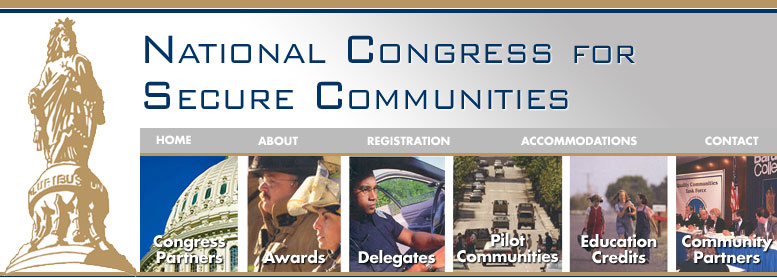Overview The ReadyCommunities Partnership is a project of CIPRR and CCROA, and brings together core partners from the private and public sector to help develop ways that innovation, new technologies and best practices can be combined in specific ways to meet community and business continuity needs during the first 72 hours of a national or large-scale crisis. The partners subsequently develop recommendations and conduct pilot demonstrations to develop templates that can be shared between communities.
The results of the Partnership's efforts will be annotated in case studies by academic partners and included in the National Blueprint for Secure Communities as part of the national template for local communities. Associate Chairs represent core private sector partners, who in turn select a Partner Chair from the public sector to work together, and in tandem with the one of 14 key sectors subcommittees on community preparedness, response and recovery.
Associate Chairs will meet regularly during the year to develop not only the metrics of the year's pilot projects, but also to chart the agenda of the National Congress for Secure Communities and Symposia series and identify the next prospect communities for the next wave of pilot projects. BACKGROUND
There are four basic programs that bring together the stakeholders and partners to promote these public/private partnerships to strengthen community preparedness:
* Associate Chairs: 14 private and community sector organizations will be invited each year to serve as Associate Chairs, to help guide research and develop best practices that can be demonstrated through pilot projects in local communities. Each Associate Chair will invite a public sector Partner to serve as a co-Chair, providing valuable and subject matter expertise for each of the core community emergency capabilities (CEC) categories.
* Regional and National meetings: Associate Chairs, community stakeholders and partners will come together at regional meetings around the country as well as gathering in Washington, D.C. for the National Congress for Secure Communities where the delegates to the meeting will be briefed on the best practices and review the results of pilot demonstrations conducted with various cities and counties. Discussions and planning will take place at the meetings to chart a course for the pilot projects during the subsequent period.
* Community Pilot program: Multiple times each year, the RCP will participate in a joint demonstration of the best practices developed by the Associate Chairs. These pilots are public/private demonstrations of the concepts and best practices discussed and developed at regional meetings in conjunction with the state and federal partners. Communities such as Oakland County MI, Hamilton County IN, Charleston, South Carolina, Buffalo NY, Johnson County KY and Galveston TX are examples of partnering communities helping to develop a particular aspect of community-level preparedness that can serve as a template for other communities through the National Blueprint (see below).
*National Blueprint for Secure Communities: As best practices and public private partnerships are developed, academic partners such as the Kennedy School of Government/Leadership for a Networked World help develop case studies for the National Blueprint for Secure Communities, a living document that allows communities to share and study methods and ways to increase their own response capacity.
In addition to the Associate, subject matter experts are recruited to help develop and guide the program development. Corporations which sponsor the annual chairs make an annual gift to support the Partnership, and each company covers their own expenses for travel, pilot demonstrations and contributions of technology and materials. Additionally, a small registration fee is charged for each of the regional and national events, the balance after expenses to be used to cover staff and development overhead.
The RCP is supported by the Corporate Crisis Response Officers Association (CCROA) and the Community Institute for Preparedness, Response and Recovery (CIPRR), both non-profit, non-partisan 501(c)3 organizations working in partnership with the Kennedy School of Government/Leadership for a Networked World to help America's communities identify best practices that can leverage private and community sector resources to increase their public sector response capability during the first 72 hours of a national or large-scale crisis. |

